16, November 2017
The pathetic situation facing 130 Southern Cameroons pregnant refugees in Obanliku Local Government Area 0
Hundreds of Southern Cameroonians who fled violence are facing serious health challenges as they seek refuge in Nigeria.

Pregnant Women at Obudu Ranch Health Center, RHC
A visit to the different camps for almost a week revealed that some are pregnant women who need adequate medical attention. Others are still battling with wounds and other infections. The case of pregnant women seems to be a cause for concern. In one of the camps in Obudu Ranch, on the Obudu mountain in Obanliku LGA, some 51 pregnant women are still wondering what the future holds for them barely months to delivery. Beyond the accommodation challenges, many complained that they have not bought a single item as part of preparation to welcome their new born.

Partial View of Pregnant Women at RHC
Majority of these women we learnt, have never visited the clinic. ” Many of them came from Akwaya without cloths. Using the same loin for two or three days affects mostly the pregnant women. When we did some tests their MP was positive, ” a community volunteer nurse at the Ranch Community Health Center, Virginia Echile explained on November 11 2017.

CDC Donating Blanckets to Pregnant Women
“The predominant illnesses from patients that we receive include malaria, typhoid and general body pains. When they were trekking from Akwaya to Kigol – one of the nearest Nigerian village through forest and rivers – they developed lower abdominal pains since they are pregnant,” she said.
The medics also complained that they were running out of drugs. “Everything is almost finished. We need anti-biotics and anti-malaria drugs. We need HIV tests tools to be running their tests, pain killers and other drugs,” she explained.
“Of the 51 pregnant women, six are due for delivery this November 2017 and 8 for December. We are in serious need of delivery kits to help us manage delivery. We have run out of hand gloves, Amoxilyn, paracetamol and other pain killers. We also need more blankets so that the nursing mothers and babies do not catch cold,” added the Chief Community Health Extension Worker of the Ranch Health Center, RHC, Madame Anna Amele. The case of the 51 registered pregnant women in Obudu Ranch Camp constitutes a minute fraction of many others scattered all over the Cross River State and other areas in Nigeria.
At the Sankwala General Hospital in the Obanliku LGA, 25 year old Oneh Janet was as still struggling to sit comfortably on the bed when we arrived there. She is a sick nursing mother to two weeks old Eric. Medical officials explained that she was brought there from another hospital after her situation was witnessing little improvement. “She was fast recovering,” they said. In the nearby maternity ward, 17 old pregnant, Ayawa Valentine was just recovering from weeks of fatigue. She was brought to Samkwala with a six month pregnancy from the Ranch Community Health Center.
 Janet and Her Son in Sankwala Hosp
Janet and Her Son in Sankwala Hosp
“The way she looks they might do cesarean. She sustained serious abdominal pains as she had to trek over a long distance. When she was brought here she was not talking, nor walking. She is better now. She eats how,” Ugbe Monica, the nurse in charge explained.
Down town in the Ikom Local Government Area, Mary Chufua who said she fled from violence in Buea with a 3 month pregnancy following a manhunt for her husband was eating a cocoa pod when she complained.
“I don’t have any money to go to hospital. I have not started my prenatal consultations, ” she said. It was the same message from Ngwa Mado who is six months pregnant. A smile was on their faces after officials of the Southern Cameroons Civil Defense Cabinet, SC – CDC gave them 10,000 naira each to begin with consultation. They expressed gratitude to Southern Cameroonian Association, SCAC,Canada, that came to their aid.
Late October, it emerged from Rhema Care, one of the Humanitarian Organisations on the ground that there were two deliveries in the Obalinku area every week, while some three cases were due for operation. “In the Obanliku Local Government Area made up of Amana, Obudu Ranch, Utanga and Sankwala communities, we have close to 130 registered pregnant women. Four of them have been operated while we have six others on the cue. It has not been an easy task especially with the numerous patients who are to be operated. We are struggling to do our best with the means available, ” explained Pastor Eric Suh, the CEO of Rhema Care, November 15, 2017.
Medics at the Sankwala General Hospital raised concerns should bleeding patients be brought in.
“Their feeding and water also remain a challenge. Otherwise the other parts are strictly medical. For the medical part of the management we now have a scan machine that would help us especially in the diagnoses. Otherwise we are doing our best to ensure every other thing is normal. We discussed that together with Doctors Without Borders.
Agbokim Waterfall SC Resident
I told them that we are not prepared for surgical emergencies for people that may be brought here bleeding. If they are in numbers we would have difficulties managing surgical emergencies. But for medical emergencies. We have no problem about that. We have enough bed space, ” the Director of the Hospital , Dr Besong Ferdinand said.
Beyond the trouble affecting pregnant women, other ladies also raised complains about their other sick children, some facing serious challenges to feed them. All these complains were recorded at the Agbokim Waterfall Camp.
During a visit to the Ajassor camp in the Etung LGA, mostly made of youths, it was also revealed that there were some who were battling with wounds they sustained in violence in the Southern Cameroons. Some sustained injuries on September 22 and October 1, while others are suffering with muscular pains as a result of walking for several hours, from Mamfe to Nigeria.

Besong, Geeting Treated
“I am grateful to our brothers in Canada who are thinking about us. We are now sure that those of us who have escaped cannot be forgotten, ” said Besong Ayamba. The CDC response team rushed him to County Specialist Hospital in Ikom where the wound he sustained on his left shin as he escaped to safety was treated. They wound was fast decomposing.
There were other Southern Cameroonians who had developed skin infections and others with fractures. “We slept at the Maromba forest for almost a month under rain and sunshine. When I arrived Nigeria, I only discovered that I had developed fungi infections which is like ring warm on my legs and hands. No way to go to hospital because I don’t have any money. And the fungi itches me every day very badly, “complained Lawson Nganga who left from Kumba. Similar complains of skin infections were presented by a lady from Akwaya in Amana camp apparently resulting from poor accommodation and sleeping conditions.
Living With a fractured thigh Challenge of Paying Hospital Bills
It emerged from the different areas visited that though hospitals were doing their best they were facing difficulties with increasing bills. We gathered from medics at the Sankwala General Hospital for instance that, the bills there stood at close to 500 000 naira with more than 13 operations already carried out.
Officials of the Ranch Health Center in Obudu said part of the medical bills there were paid by the UN HCR while more than half has not been cleared. “I can assure you to continue treatment of all Southern Cameroonians. Do not stop the treatment. We are mobilizing ourselves and our people all over the world and we would eventually foot the bills, ”
the SC Executive President Sir Ekili Clarence reassured the nurses, when he was informed on November 11, that some more than 200 naira was owed the health facility by Southern Cameroonians. The CDC was up the Obudu Ranch health Center to provide warm clothing, blankets and other non-food items to pregnant women as a result of the cold weather on the mountain.
Open Defecation Needs Attention
“There is need for the implementation of Water Hygiene and Sanitation programs because open defecation is an environmental and public health challenge, ” said Pastor Eric Suh.
By Solomon Amabo, Cross River State, Nigeria


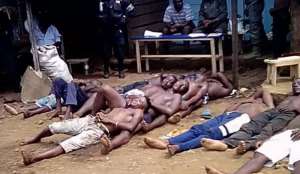
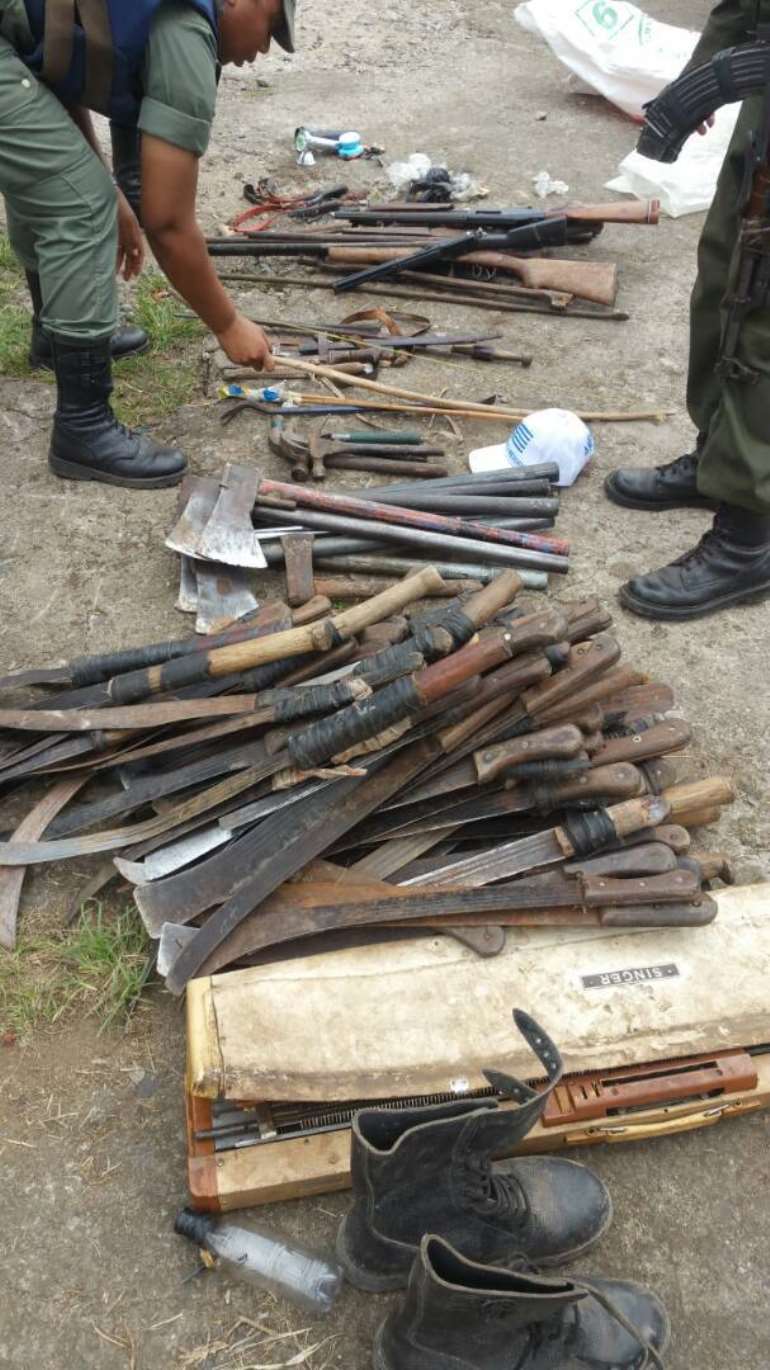
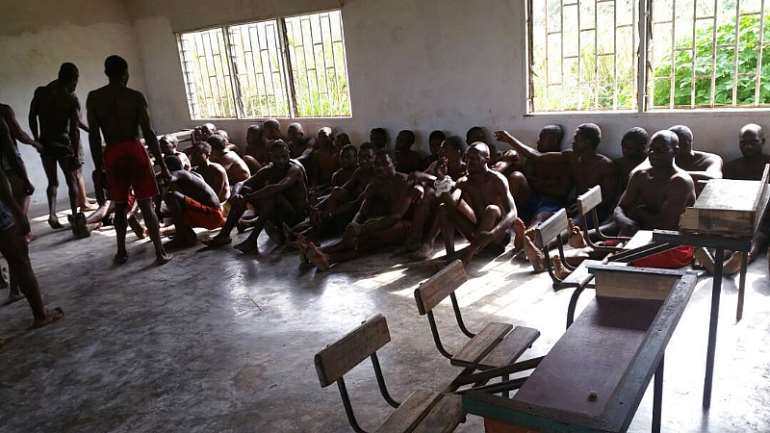
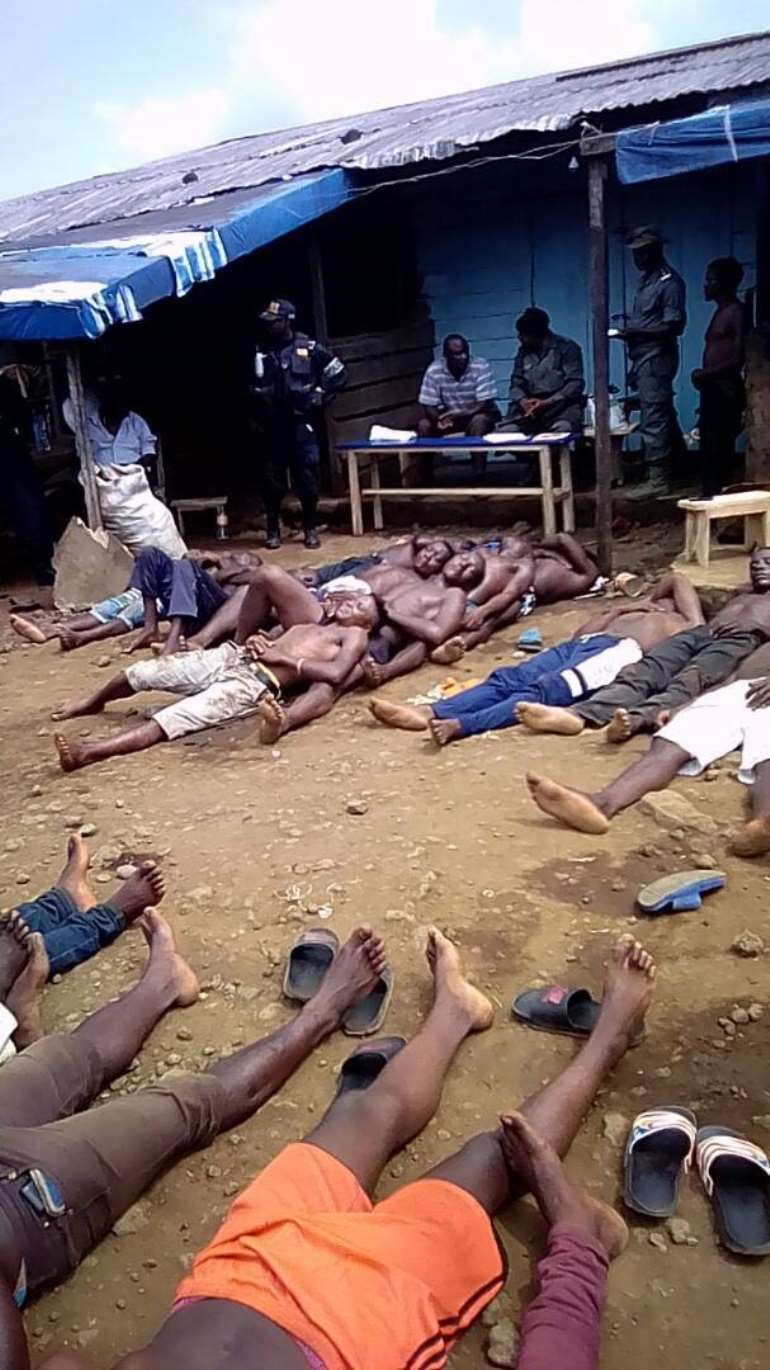
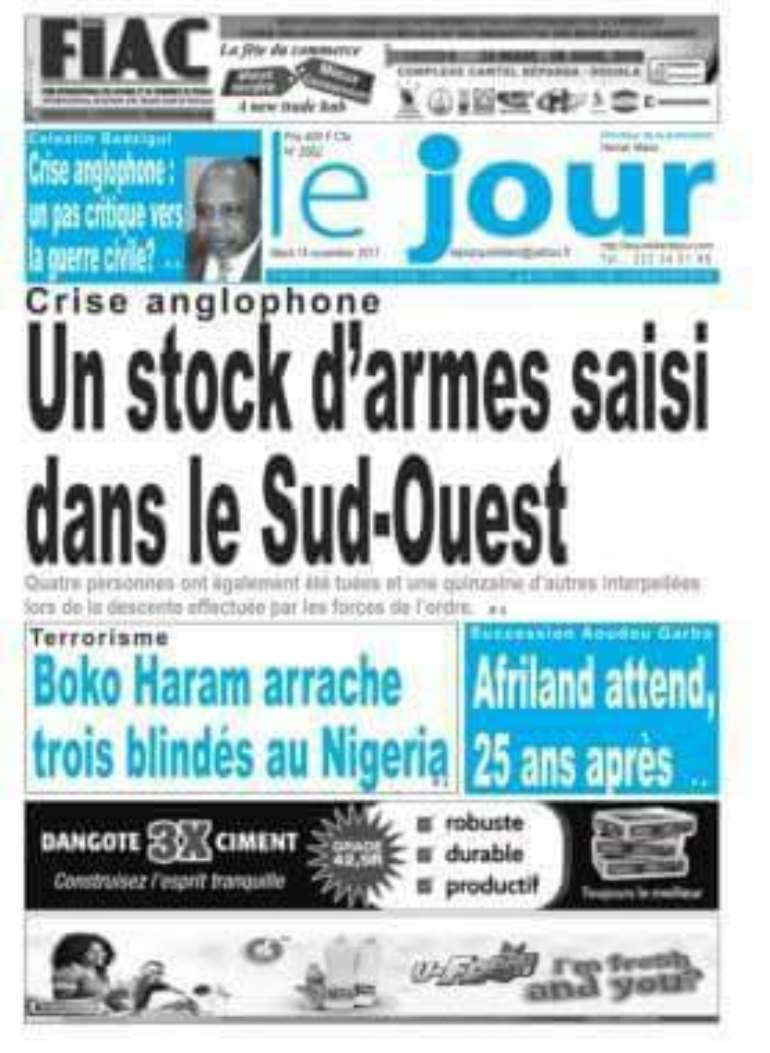






























16, November 2017
Central African Republic: UN agrees to deploy extra peacekeepers 0
The United Nations will send an extra contingent of troops to the Central African Republic amid warnings that lack of international support would leave the country at a real risk of ethnic cleansing.
During a Wednesday session of the UN Security Council, member countries unanimously agreed to beef up the UN mission in CAR, which is known as MINUSCA.
The agreement came after negotiations between France, a main foreign power present in CAR, and the US, the biggest financial contributor to UN peacekeeping. That led to a 15-0 vote to extend MINUSCA mandate in Central Africa for one more year and a deployment of 900 extra peacekeeping troops to the country, as requested by UN Secretary-General Antonio Guterres.
Guterres had previously warned that Central Africa was at the brink of an ethnic cleansing if the UN failed to contribute more.
French Ambassador Francois Delattre hailed the decision and said the US approval of an extended mandate was very crucial.
“The Security Council cannot afford to take the risk of allowing the CAR to relapse into a crisis in which it was mired,” Delattre said, adding, “With our American friends, the more the discussions are based on a pragmatic approach, about life-and-death issues, about effects on the ground, the better.”
France intervened in CAR in 2013 to push back Seleka rebel alliance that had toppled longtime leader Francois Bozize. However, the country has seen widespread violence since then as various groups continue to vie for power across provinces.
MINUSCA’s chief resigned in 2015 in the face of rising allegations of sex abuse against the UN peacekeepers, further complicating the situation of foreign troops in the country.
Source: Presstv